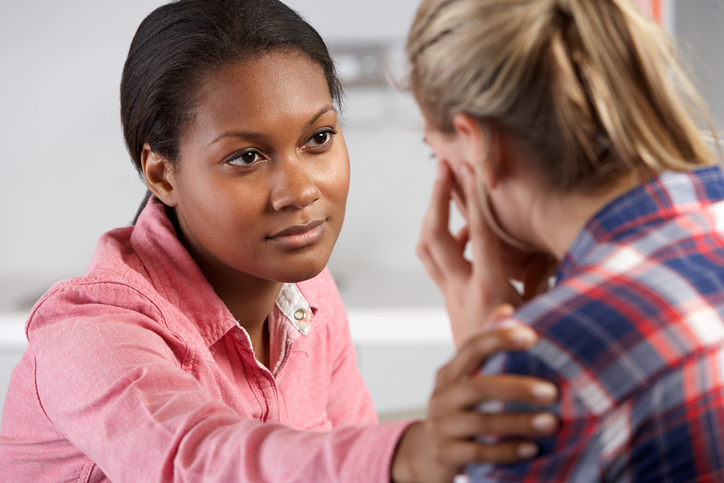
If someone is experiencing depression, feelings of hopelessness can be consistent. This is one of the more common features of depression, alongside possible feelings of pain, anger, trauma, and/or anxiety (Knaus, 2015). Oftentimes, a person can feel as if there is no hope for their future, and that things cannot possibly improve for them. Such feelings can also contribute to how they view not only themselves and their self-worth, but also their perception of others and the world around them. This can also impact their level of interest in things they once loved and valued, as well as their well-being on multiple levels (“Hopelessness”, 2018).
While the root of one’s hopelessness can come from various sources, a professional who has completed their therapist training can help identify why these feelings exist, and help their client work toward challenging them.
What Hopelessness Is, and What Those Feelings Entail
Hopelessness can manifest itself after life events that can trigger these emotions, or as a symptom of other mental health conditions such as bipolar disorder, anxiety, depression, suicidal thoughts, or PTSD (“Hopelessness”, 2018).
When a client feels particularly hopeless, they can convince themselves into thinking their feelings will never subside. These feelings can evolve into expectations of feeling hopeless, leaving a person feeling trapped in a cycle that they cannot escape (Knaus, 2015). Hopelessness can also manifest itself in a number of different forms, including powerlessness, alienation, abandonment, a lack of inspiration, and feelings of impending doom (Borchard, 2018). A person may experience thought patterns such as thinking in black-and-white terms, or overgeneralizations about their emotions and experiences (Borchard, 2018). Feelings of hopelessness can also lead to people not exercising or having a healthy social life, which can add to depressive symptoms they’ve already been experiencing (Leahy, 2010). The isolation that can result from feelings of hopelessness in its various forms can also lead to extreme fatigue and worry, as well as a lack of trust in one’s own decision-making (Westerson, 2019).

Graduates of therapist training know how to notice barriers to people’s mental and emotional well-being, and how to overcome them. As a result, they are able to recognize when clients feel hopeless, when they feel as if they are unable to improve, or feel unworthy of success (Knaus, 2015). Fortunately, a counselling therapist can help clients overcome these feelings.
How to Help Clients After Therapist Training
One way a graduate from counselling therapist college can help clients overcome their feelings of hopelessness and negativity is by stressing the importance of challenging negative thoughts. For example, a client’s first instinct may be to look for reasons to validate their negative thoughts and emotions. When one feels hopeless, they can find themselves feeling as if they want to give up, or that they have no hope for their future, or that they can never feel happiness again (“Hopelessness”, 2018). You can try to emphasize the fact that their beliefs are not necessarily warranted, and that they should think more in terms of probability as opposed to personal beliefs or catastrophizing (Knaus, 2015). More specifically, you can try to use techniques associated with cognitive therapy. This can help clients better understand their thoughts and beliefs, why they’re negative, and why they are not necessarily based on facts (“Hopelessness”, 2018).

Moreover, encourage clients to contest their own all-or-nothing thought processes and acknowledge the nuances that different situations carry. Clients can write a list of potential solutions to their despair (Westerson, 2019). It’s important to remind clients that feeling hopeless does not make it factual, and emphasize to them the importance of confronting those emotions and converting them into increased positivity.
Do you want to take counselling therapist courses?
Contact Rhodes Wellness College to learn more!
Works Cited
Borchard, T. J. (2018, July 8). 9 Types of Hopelessness and How to Overcome Them. Retrieved from https://psychcentral.com/blog/the-9-types-of-hopelessness-and-how-to-overcome-them/
Hopelessness. (2018, June 19). Retrieved from https://www.goodtherapy.org/blog/psychpedia/hopelessness
Knaus, B. (2015, February 28). Overcome Hopelessness Thinking and Stop Feeling Depressed. Retrieved from https://www.psychologytoday.com/us/blog/science-and-sensibility/201502/overcome-hopelessness-thinking-and-stop-feeling-depressed
Leahy, R. (2010, August 5). How to Overcome Your Feelings of Hopelessness. Retrieved from http://www.oprah.com/spirit/how-to-overcome-your-feelings-of-hopelessness/all
Westerson, L. (2019, December 20). How to Stop Feeling So Hopeless. Retrieved from https://mountainside.com/blog/depression/how-to-stop-feeling-so-hopeless









